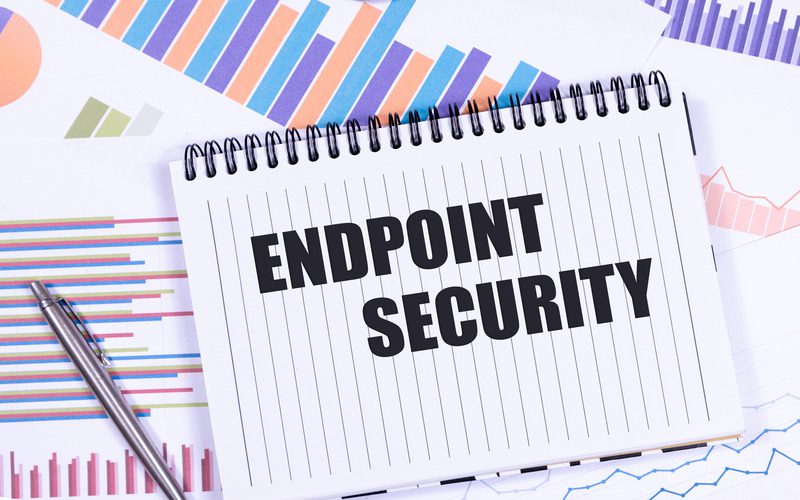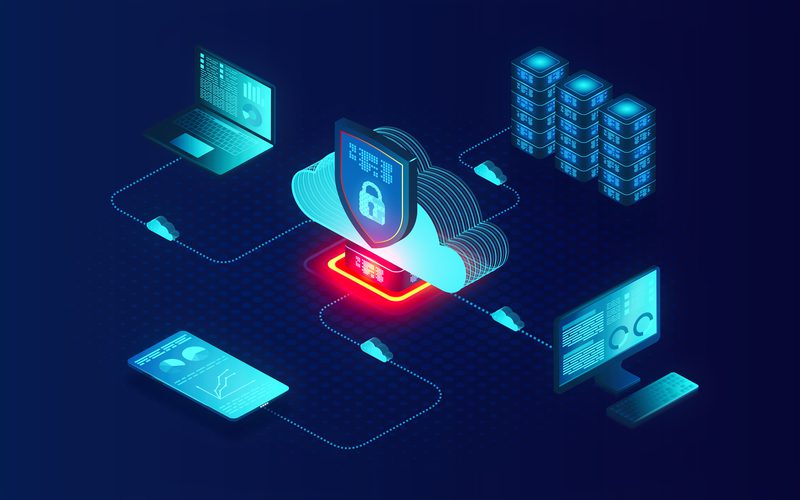According to a recent study by the Information Systems Audit and Control Association (ISACA), “nearly 60 percent of enterprises are aware that cybercriminals are exploiting the COVID-19 crisis to target their IT systems and employees.” With the pandemic forcing business leaders to transition to a remote, work-from-home workforce, companies are quickly seeing new security risks related to remote endpoints. Protecting your remote users with endpoint security has now become more important than ever.
Endpoint security is the process of securing various endpoints, such as desktop computers, laptops, servers and other specialized computing hardware. These devices can either be on the corporate network, or, as is the case with remote workers, off-network and connected via the Internet.
Why is Endpoint Security Important for Remote Users?
With more companies shifting their employees to remote work due to the COVID-19 crisis, vulnerable endpoint devices can become easy points of entry for cybercriminals. Endpoints become vulnerable if the software running on them isn’t patched in a timely manner. To drive home this point, there were more than 12,000 publicly disclosed software vulnerabilities last year.
Every month on Patch Tuesday, Microsoft provides security patches to remediate vulnerabilities in its software products, from Windows to browsers and business applications. The May 2020 Patch Tuesday provided patches for 111 vulnerabilities across 12 products.
If your end users are working remotely, they’re off the corporate IT network, which means managing and keeping those devices updated could be challenging unless you have the ability to also patch those off-network devices.
Unpatched endpoints can be susceptible to cyberattacks, with hackers:
- Taking control of endpoints to launch DDOS attacks
- Using endpoints as entry and exit points to steal company and personal data
- Holding sensitive data or machines for ransom
When ransomware infects a single computer, it can quickly spread throughout the network, paralyzing your entire business.
Cyberattacks can not only shut down businesses, but also put IT leaders out of jobs. With the current crisis at hand, dealing with a cyberattack is the last thing you need on your plate.
Best Practices for Remote Endpoint Security
Organizations have, for decades, relied on antivirus/antimalware (AV/AM) software to secure endpoints. However, you need more than the traditional AV/AM solutions to secure your remote endpoints against today’s sophisticated attacks.
Here are five best practices you can implement to create a secure remote environment for your business:
Enable (Virtual Private Network) VPN for remote endpoints
Setup VPN on your remote endpoints to allow your users to access a secure link back to the office environment. You can use your endpoint management solution to deploy the VPN client, configure it, and once it’s all set up, you can monitor it and ensure that the client is up and running.
Patch your off-network devices
Automate patching of your off-network devices, monitor the patch status on all machines and track the vulnerabilities that can impact your environment. Your endpoint management tool automates patch management to ensure that patching occurs in a timely manner, without burdening the IT team.
Implement two-factor authentication (2FA)
2FA provides a second layer of authentication to access your applications by requiring users to provide a password (something they know) and a mobile app or token (something they have). 2FA is one of the easiest methods you can use to prevent cybercriminals from taking advantage of weak or stolen credentials (passwords) and hacking into your systems. Your employees’ credentials are probably out there on the Dark Web just waiting for cybercriminals to take advantage of them. Don’t let them!
Provide cybersecurity training to all your employees
With more employees now working from home than ever before, cybersecurity training is absolutely essential. As noted in our earlier blog, Top 10 Cybersecurity Threats in 2020, phishing attacks are getting more sophisticated everyday. Cybersecurity training can help prevent employees from falling victim to these kinds of attacks. This training can be accomplished through online videos and simulated phishing emails sent to all your remote workers.
Use cloud backup for your remote workforce
Your workforce may be scattered at the moment, but your IT staff and equipment doesn’t have to be. Protect end-user data without the hassle of setting up an appliance or local storage at every office location. Cloud backup is the simplest way to back up from anywhere with internet connectivity—including WiFi, so the data on remote endpoints is covered as well.
Kaseya VSA for Remote Endpoint Security
Kaseya VSA is a remote monitoring and endpoint management solution that helps you secure your systems as well as your remote, off-network endpoints.
With Kaseya VSA, you can:
- Monitor and remotely manage all devices on- and off-network
- Automate deployment, installation and updation of software on all endpoints, even over low bandwidth (e.g. Wi-Fi) networks
- Automated patch management covers Windows and macOS, as well as browsers and third-party applications
- Maintain compliance with your company security policies
Integrated with industry-leading AV/AM solutions, such as Bitdefender, Webroot, Kaspersky, and with a backup solution, such as Kaseya Unified Backup, Kaseya VSA provides you with complete endpoint protection for your business needs.
To learn more about endpoint security for a remote workforce, watch the video below:





